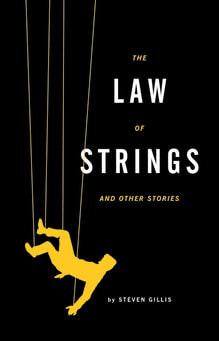According to George Singleton, the motto for the Southern States should read, “The land of the free and the home of the strays.” At least, that’s the picture he portrays in his new novel Stray Decorum.
Decorum, Singleton’s fifth book, aims to capture the enchanting, yet bizarre, Southern disposition through a collection of eleven short stories – all centered around small-town South Carolina living. Contrary to the illustration on the front cover, Stray Decorum is not solely a collection of anecdotes about man’s best friend. Instead, it’s a quirky and often hilarious ensemble of tales about strays, both human and mammal, alike.
0 Comments
With most of Eugen's stories taking place in his home-region of up-state Pennsylvania, his characters and their predicaments are very much tied to their surroundings. Much emotional energy is drawn around this through looks exchanged at bonfires, cold nights spent in lonely dive bars, and romances beginning and ending at a peninsula reaching into Lake Erie.
Cross seems to like baiting the reader into projection. In many of his stories, you are nestled into a seemingly clean and simply-sequenced narrative only for your expectations to be shattered by some kind of unforeseeable event. In “Come August,” Megan, the protagonist, is preoccupied with boy problems and anticipation of going away to college for the first time. While babysitting her half sister and a neighborhood girl, Megan briefly falls asleep. When she wakes up, her concerns—which the reader has not only invested his or her self in, but also anticipates an outcome from—disintegrate when she finds the two girls have drowned in the pond in her back yard.
The title of Steven Gillis’ collection of short stories – The Law of Strings and Other Stories – couldn’t be more fitting. In Gillis’ fifteen tales, he examines the human condition through relationships with a keen eye for philosophical musings and theories of quantum mechanics. Some of the scenes Gillis paints for us verge on ridiculous but he handles the whimsy well. In the end, however, the stories are not about the plots: in each story, Gillis writes tragic characters who want nothing more than to be understood by and relate to others, even though numerous obstacles continuously prevent them from doing so. Using humor, absurdity, and scientific theories, Gillis illustrates the contradictory nature of relationships: how all humans seem to want is to connect to others and yet such a connection among such complex creatures is almost impossible. We all grasp at these metaphorical “strings” to tether us together while the world tries its hardest to pull us apart.
|
Archives
July 2024
Categories
All
|
|
Glassworks is a publication of Rowan University's Master of Arts in Writing 260 Victoria Street • Glassboro, New Jersey 08028 [email protected] |
All Content on this Site (c) 2024 Glassworks
|




 RSS Feed
RSS Feed
